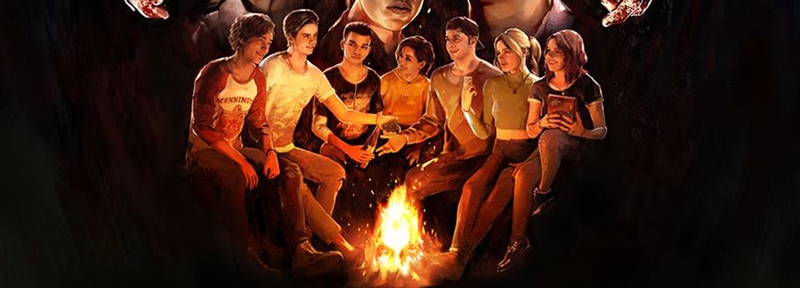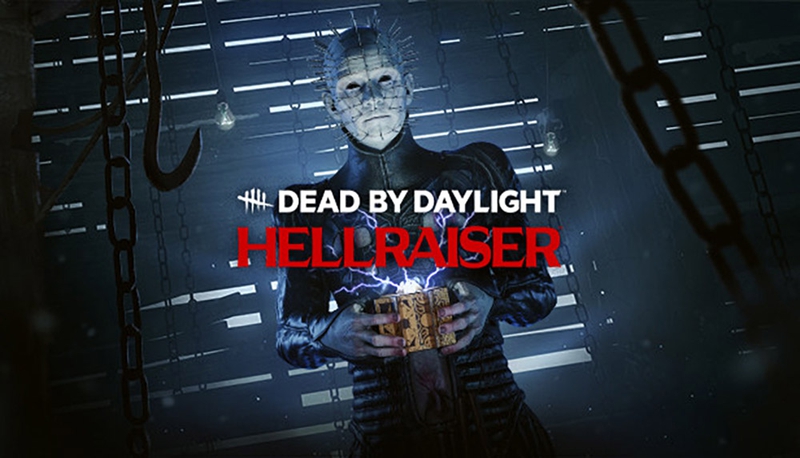There's something to be said about the many ways that horror media tends to trend on social media and the larger cultural landscape. Sometimes it's the result of a genius marketing campaign, like Paramount planting a gang of grinning ghouls at football games to promote its new film, Smile. Sometimes it's a deliberate act of fandom, like the queer community collectively electing the Babadook as queer royalty. And sometimes it's even accidental, like the Dead By Daylight team giving Silent Hill's Pyramid Head a disarmingly well-sculpted ass (and subsequently taking it away when the community started thirsting over him instead of running away from him). But as this cycle continues, it's worth questioning: what medium tends to get the masses talking more? What steers the conversations surrounding horror nowadays: film and television or video games?
Fandom is a pivotal aspect when it comes to the success of horror and media in general. Memes, fan-fiction, fan art, merch, trending hashtags, TikTok videos, Discord channels–the list of ways that fans can engage with media of their choice is expansive, and it all contributes to its cultural relevance and longevity. However, some genres and mediums lend themselves more effectively to engagement than others.
Catching up with actress Siobhan Williams, whose career has spanned TV shows, films, and most recently, the realm of video games in Supermassive's recent hit horror game The Quarry, she shared that the role of fandom in cultural relevance skews by the medium. "From my experience, 100% fans from games are more vocal and more excited." Starring as Laura in The Quarry, Williams became a fan favorite and frequently engaged with fans on Twitter around the time of the game's release. "The fans from The Quarry have been so invested since even before day one, and I can't believe the amount of messages, love, and fan-art, and just sweet sentiments I've received. I've never had anything like that in my career."

On the other hand, Williams doesn't downplay fandom's role in the success of film and television, either. "A built-in fanbase is something studios and networks have come to rely heavily on, which is why we're seeing so many reboots, remakes, and adaptations," says Williams. And it's a good point to bring up; the history of film and television spans much further back than video games, and intergenerational fandoms have spawned as a result. Horror, in particular, capitalizes on this: take Hocus Pocus 2, the nearly three-decade sequel from its 1993 original, debuted as the #1 film premiere on Disney+ to date. This is undoubtedly thanks to its legacy fans–people whose first crush was Max Dennison, Sarah Jessica Parker loyalists, and drag queens inspired by The Sanderson Sisters–who likely rallied newer generations to watch as well.
But as time goes on, video games evolve, and newer generations begin canonizing certain gaming franchises the same way film and television franchises have been, there's no doubt a shift in how folks consume their media and, consequently, the formation of fandoms. When looking at the next generations who pick up the fandom baton, there are a handful of arguments about how video games cater more to their interests.
Gen Z, for example, tends to crave individualism and choice. They tailor their social media to fit their personalities. They stream what they want, when they want, and enjoy showing off their Spotify Wrapped at the end of the year. Video games provide a level of immersion and choice that speaks to that behavior.

The Quarry is a great example: it's a choice-based game that plays like a slasher, and the player's choices determine who lives and who dies by the end of the night. Williams echoed similar sentiments regarding how horror games create a more immersive experience over films, saying, "I think that the primal feeling of knowing there are consequences that depend on your actions in a game up the ante of horror so much. It makes it personal. It makes it feel way more real." When players finish the game, they often go on social media to chat with others who have played: what choices did they make? Who lived, and who died? What different endings exist?
This doesn't even account for the massive amount of streamers on YouTube or Twitch who turn video games into fully cinematic experiences for their audiences. In fact, The Quarry had a Hocus Pocus 2 moment of its own on Twitch, becoming one of the most popular categories on the site during its first week of release (thanks in part to rallying the fans of Supermassive's previous titles, like Until Dawn).
Films had always held one clear advantage over video games regarding rallying fans — movie theaters. The social aspect of going out and seeing a movie, the communal experience of a packed opening night, and moviegoer culture lend an appealing, unique novelty to the medium. However, it's becoming clear that in the future of a post-COVID-19 world, priorities may be shifting away from movie theaters. The future may be streaming, and video games have been ahead of that curve. To watch a popular stream of The Quarry on Twitch is to essentially watch a slasher film with a fandom to interact with in real-time.

Perhaps the most interesting angle to examine is the blend of film, television, and video games and its impact on fandom. Films are tapping into built-in video game audiences by adapting more video games to films (and trending as a result: see the reaction to the release of the trailer for The Last of Us). Video games reinvigorate the love of classic horror characters by integrating them into their lore (see Pinhead trending on Twitter at #1 last year when Dead By Daylight announced its Hellraiser DLC chapter). Maybe the question of cultural relevance doesn't need the mediums to be at odds with one another. But I challenge you, reader, to start keeping tabs on what horror media tends to trend. You may be surprised by which medium prevails!






